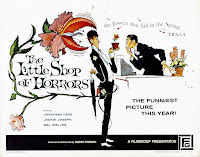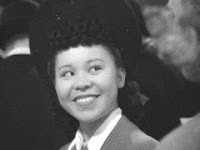 |
| Philip Ahn & Anna May Wong |
While Anna May Wong lost the role of O-lan in The Good Earth, it was in 1937 that her career somewhat improved. She signed to Paramount, who featured her in a series of B-movies. While these B-movies were sometimes dismissed by the critics of the day, they gave Anna May Wong the chance to play Chinese American roles that were not stereotypes and were regarded in the Chinese American press of the time as positive images of East Asian Americans. Significant among these movies is Daughter of Shanghai (1937), the second film Anna May Wong made for Paramount.
In Daughter of Shanghai Anna May Wong plays Lan Ying Lin, the Chinese American daughter of a Chinese art dealer, Quan Lin (Lee Ching-Wah). When Quan Lin refuses to cooperate with criminals smuggling illegal aliens in to the United States, they kill him and attempt to kill Lan Ying Lin, who survives. Lan Ying Lin decides to take matters into her own hands and investigate the smugglers herself. Also investigating the smugglers is Chinese American FBI agent Kim Lee (Philip Ahn). The two eventually team up to take down the smuggling ring. As to why a movie centred on a Chinese American would be titled "Daughter of Shanghai," there is an explanation for that in the movie.
Daughter of Shanghai is historic in that it is one of the earliest American movies to feature two East Asian American leads. In some respects, Philip Ahn's career reflected that of Anna May Wong. Philip Ahn was a Korean American actor who also often had troubles finding good roles. Korean and Korean American roles being rare in Hollywood during the Golden Age of Hollywood, Philip Ahn often found himself playing Chinese American roles and later Japanese roles. His character Kim Lee in Daughter of Shanghai was not simply historic because it was a lead role, but also because it may well be the first portrayal of a Chinese American law enforcement officer in the history of American film. What is more, Kim Lee is not played as a stereotype at all, but an intelligent, resourceful FBI agent who speaks without an accent. Anna May Wong's character Lan Ying Lin is also portrayed with dignity and without any stereotypical traits. Indeed, it is to be noted that in Daughter of Shanghai not one East Asian role is played by a white person in yellowface. The Chinese American characters are all played by East Asian American actors.
While most of Daughter of Shanghai was shot on the Paramount lot, the film is of interest to those who would like a look at San Francisco in the Thirties. Early in the movie there is an establishing shot of San Francisco's Chinatown in which the exterior of the Shanghai Low restaurant is visible.
Daughter of Shanghai was released on December 17 1937 to largely positive reviews. It also did well at the box office. Paramount would follow Daughter of Shanghai up with Dangerous to Know (1938). Anna May Wong and Philip Ahn would be reunited in the 1939 film King of Chinatown, in which they once more played the leads.
While Daughter of Shanghai is dated to some degree (on more than one occasion someone must come to Lan Ying Lin's aid), it holds up as a fine crime movie. Anna May Wong and Philip Ahn both give good performances, as do other members of the cast. And while Daughter of Shanghai was shot on a low budget, it still looks very good with impressive set design and some very fine costumes. Its plot has a good deal of excitement while at the same time avoiding the cliches of the genre.
Daughter of Shanghai was a historic film in giving audiences two East Asian American leads in roles that were far removed from the stereotypes so prevalent during the era. It also happens to be a very good film. It is for those reasons that it was added to the National Film Registry of the Library of Congress in 2006.



.jpg)

